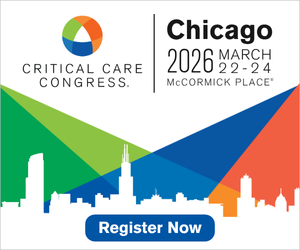
Varying ECMO Flow Effect on Pulmonary Capillary Wedge Pressure
This Concise Critical Appraisal reviews a single-center study examining whether varying venoarterial extracorporeal membrane oxygenation flow affects pulmonary capillary wedge pressure in patients wit...
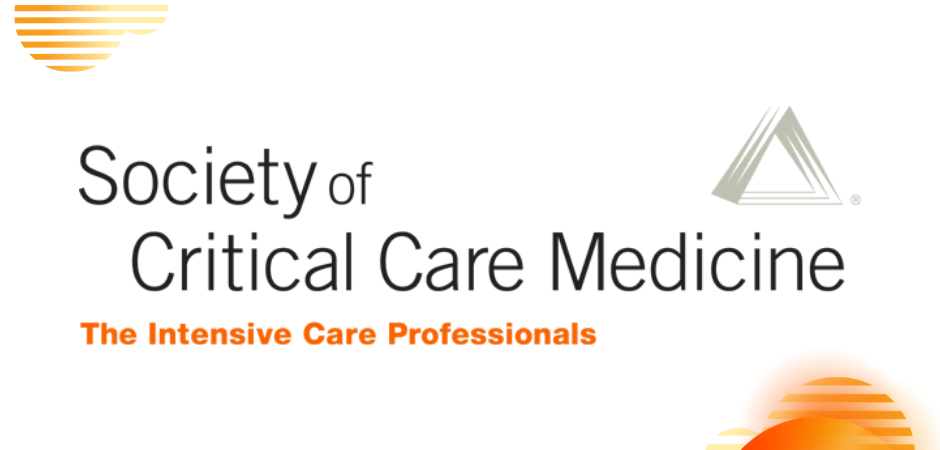
President's Message: Mourning the Loss of ICU Nurse Alex Pretti
The Society of Critical Care Medicine (SCCM) expresses heartbreak over the death of intensive care unit (ICU) nurse Alex Pretti in Minneapolis this past weekend. The Society extends its deepest condol...

Functional Morbidity Following PICU Discharge
This Concise Critical Appraisal explores a recent single-center study examining the prevalence and trajectory of an acquired dysfunction after a pediatric intensive care unit stay.

President's Message: As Pediatric Inpatient Units Close, SCCM Is Listening
During the past decade, hospitals of all sizes have closed or downsized pediatric inpatient units and decreased pediatric beds, often citing financial pressures, staffing shortages, and a growing dema...

Machine Learning Predicts Severe Community-Acquired Pneumonia
Community-acquired pneumonia (CAP) is common and a leading cause of death worldwide.

Anticoagulants Lower Blood Clot Risk in Critically Ill Adolescents
Critically ill children with prolonged lengths of stay, central venous catheterization, and concurrent infectious or parainflammatory processes have a high risk of hospital‐acquired venous thromboembo...
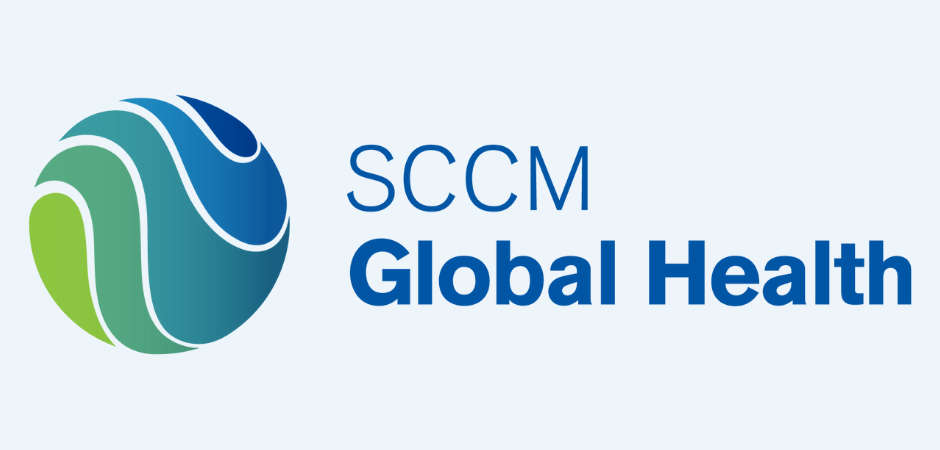
SCCM Supports Fundamentals Training in the West Bank
The Society of Critical Care Medicine (SCCM) is strengthening critical care training for healthcare professionals in the West Bank by training instructors for a range of SCCM courses.
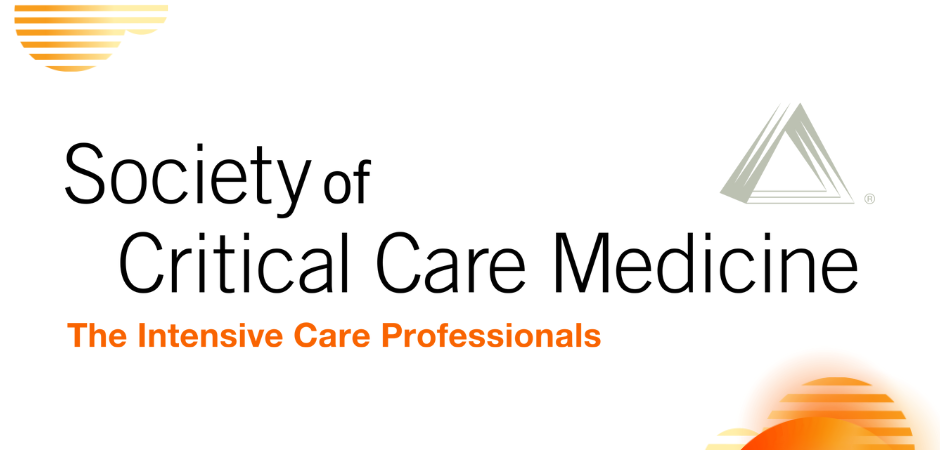
President's Message: Federal Loan Caps: What It Means for Critical Care
The Society of Critical Care Medicine (SCCM) recognizes and appreciates the recent bipartisan, bicameral
Knowledge Area:
Blog

Not Just a Sore Throat: Why Group A Strep Still Belongs on Our Radar
A new Infectious Diseases Society of America guideline on group A streptococcus redefines how clinicians should assess and test for streptococcal pharyngitis, emphasizing precision and stewardship acr...

The Role of Targeted Regionalization for Sepsis Care
The United States has a well-established trauma system that designates each hospital to a tier and sends patients to the appropriate regional hospital based on their condition.1,2 Could a s...

Successful Implementation of the ICU Liberation Bundle in a Florida Community Hospital
A Florida hospital had improved patient outcomes for patients through daily, consistent application of the ICU Liberation Bundle (A-F) elements.

Critical Care Psychiatry
Delays in involving psychiatry in critical care patients miss key opportunities to improve care and facilitate ICU liberation. This longstanding paradigm is beginning to shift toward earlier involveme...

SCCM Welcomes New CEO/EVP
The Society of Critical Care Medicine has named Megan N. Schagrin, MBA, CAE, CFRE, AAiP, as the next CEO/EVP.

President's Message: Exploring SCCM: Breathing Life Into West Africa
SCCM President Jose L. Pascual, MD, PhD, FRCS(C), FACS, FCCM, provides an update on the completion of SCCM's first healthcare infrastructure initiative—Africa Infrastructure Relief and Suppo...
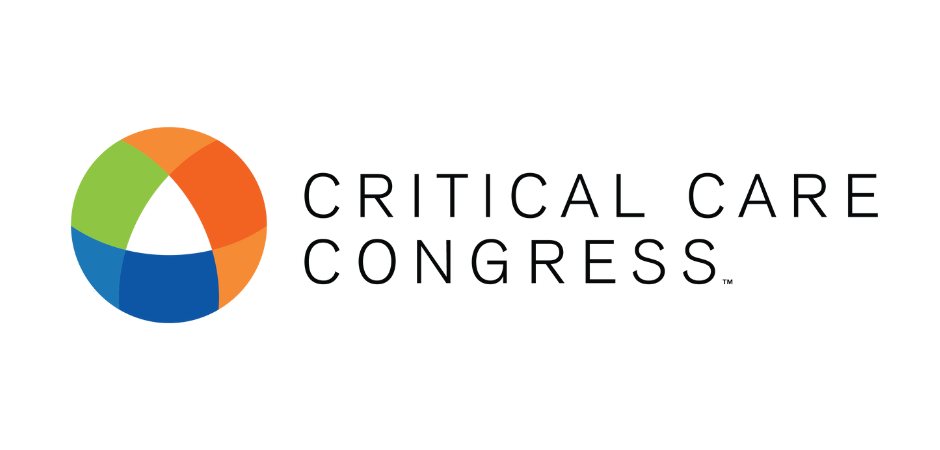
SCCM 2026 Congress: What to Know Before, During, and After
Plan ahead for the Critical Care Congress with SCCM's breakdown on what you should know before Congress, what to focus on while you are on site, and everything you need to wrap up the experience.

Thought Leaders at the 2026 Critical Care Congress
Critical care professionals will gather in Chicago for the Society of Critical Care Medicine’s (SCCM) 2026 Critical Care Congress, connecting with colleagues from across the globe and exploring ...

Ultra-Low-Field Portable MRI on Patients Undergoing ECMO
This Concise Critical Appraisal explores a prospective observational study examining the feasibility and safety of ultra-low-field portable MRI in patients undergoing extracorporeal membrane oxygenati...

SCCM Returns to Ukraine to Train Clinicians
As part of the Society of Critical Care Medicine’s (SCCM) mission to ensure the highest-quality care for every critically ill and injured patient worldwide, SCCM volunteers returned to Ukraine t...

Blood Pressure Goals in Children With Septic Shock
A single-center, randomized noninferiority study found no difference in mortality in children with septic shock when comparing mean arterial blood pressure goals of 5% and 50% for age.

An Early Rehabilitation QI Program Promotes CAM-ICU Delirium Screening
Delirium is common in the intensive care unit and is associated with worse long-term physical and mental health outcomes. Read about one hospital’s quality improvement program that promotes deli...

President's Message: Protecting Critical Care: SCCM’s Voice in Uncertain Times
The Society of Critical Care Medicine (SCCM) continues its unwavering mission to improve care for critically ill and injured patients and is working diligently to represent your concerns.

SCCM Delegates Lead Critical Care Wins at the AMA 2025 Annual Meeting
The SCCM American Medical Association House of Delegates delegation helped shape several high-impact health policies that will benefit critically ill patients through testimony, coalition-building, an...

When to Press on Vasopressin in Septic Shock Patients
Patients with septic shock who receive vasopressin at higher norepinephrine doses or lactate levels had significantly greater mortality, indicating that sepsis severity at initiation—not the exa...

A Look Behind the PADIS Focused Update
Kimberley Lewis, MD, MSc, FRCPC, methodology chair of the recent PADIS guideline focused update, discusses some of the changes and new recommendations.
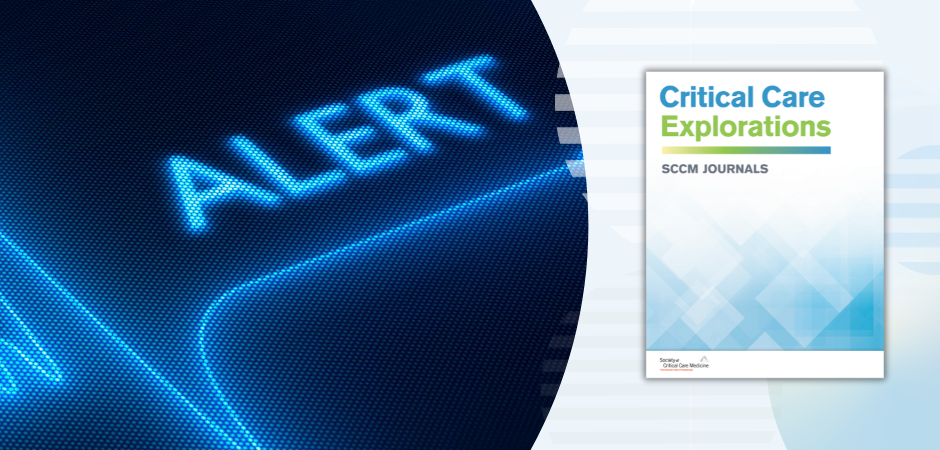
A Simple Clinical Tool to Assess OHCA Mortality Risk
The risk of death for patients with out-of-hospital cardiac arrest (OHCA) is high. Only about 20% reach the hospital alive. Among those who reach the hospital, short-term mortality can be up to 65%.

Machine Learning Successfully Identifies Subphenotypes of Pediatric ARDS
Successfully identifying subphenotypes of pediatric acute respiratory distress syndrome (PARDS) could lead to better, more targeted therapies.

Machine Learning Helps Develop Better ICU Benchmarking Model
Many current length of stay (LOS) models are flawed in capturing why patients stay longer in the intensive care unit (ICU).
Knowledge Area:
Blog
Professional Development and Education
Quality and Patient Safety

Collaboration and Inspiration at the Critical Care Innovation Incubator
SCCM brought together leading minds across diverse disciplines to explore emerging critical care innovations in pharmaceuticals, medical technology, big data, and AI during the inaugural Critical Care...

Accuracy of Tidal Volume-Diaphragmatic Contraction Velocity for Predicting Weaning Outcome
This Concise Critical Appraisal explores a recent study evaluating the accuracy of tidal volume-diaphragmatic contraction velocity to predict mechanical ventilation weaning success compared with esoph...

A Letter From the 2026 Critical Care Congress Cochairs
The cochairs of the 2026 Critical Care Congress discuss what to expect at the 2026 Congress, to be held in Chicago, Illinois, from March 22-24, 2026.

Neonatal Therapeutic Hypothermia for Hypoxic-ischemic Encephalopathy
This Concise Critical Appraisal explores a recent randomized clinical trial on whether therapeutic hypothermia initiated at six hours of age reduces the probability of death or disability in infants b...

Is Early Antibiotic Administration for Hospital-Acquired Pneumonia Debatable?
A recent retrospective cohort study failed to demonstrate clinical outcome improvement for early antibiotic administration. Despite this finding, practitioners should continue to ensure that patients ...

President's Message: Exploring SCCM: A Society and Its Manuscripts
Society of Critical Care Medicine (SCCM) president Jose L. Pascual, MD, PhD, FRCS(C), FACS, FCCM, describes the process of SCCM-endorsed manuscripts and potential upcoming changes.

Excellence in ICU Liberation
ICU Liberation is more than a static achievement; it is a journey of small successes that lead to better outcomes. Sergio L. Zanotti-Cavazzoni, MD, FCCM, discusses what excellence means in ICU Liberat...
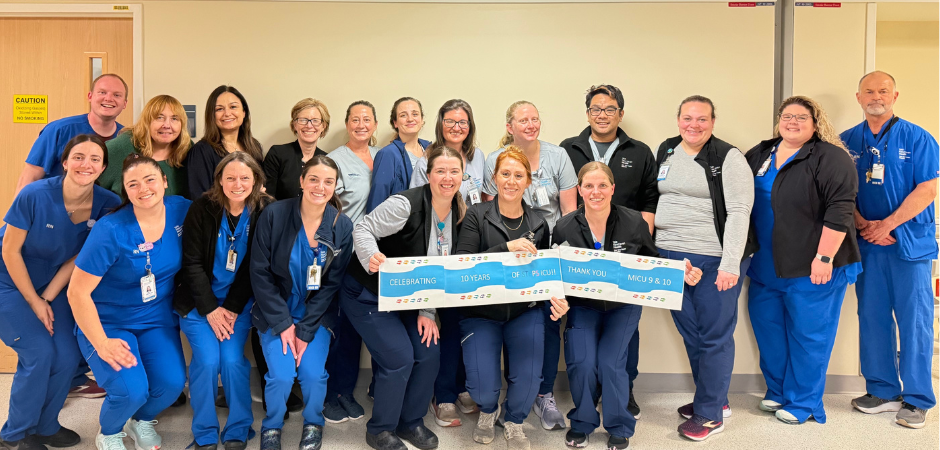
Lessons From 10 Years of Early Mobility
How can an early mobility program overcome the practical barriers to implementation and sustainability? SCCM member Lauren Ferrante, MD, MHS, discusses 10 years of success in Yale New Haven Hospital&r...

President's Message: Improving Patient Outcomes Globally
Society of Critical Care Medicine President Jose L. Pascual, MD, PhD, FRCS(C), FACS, FCCM, describes the Society's commitment to improving patient outcomes through innovative global initiatives.

Obesity, Mortality, and ECMO
This Concise Critical Appraisal reviews a recent retrospective study that examined the effect of obesity on the mortality rate in patients undergoing venoarterial extracorporeal membrane oxygenation. ...

Critical Care at Risk: The Real-World Impact of Research Funding Cuts
From groundbreaking therapies for sepsis to advanced respiratory support and innovative monitoring techniques, critical care medicine has dramatically improved outcomes for patients facing the most li...

Relationship Between Adequacy of Caloric Support and Outcomes in Pediatric TBI
This Concise Critical Appraisal reviews a recent study exploring the association between adequacy of caloric support and functional outcomes in pediatric patients with severe traumatic brain injury at...

What Is an Intensivist? The 2024 Consensus Statement
A Society of Critical Care Medicine task force recently reviewed the 1992 intensivist definition guidelines in order to craft a new definition of an intensivist relevant to the current realm of team-b...
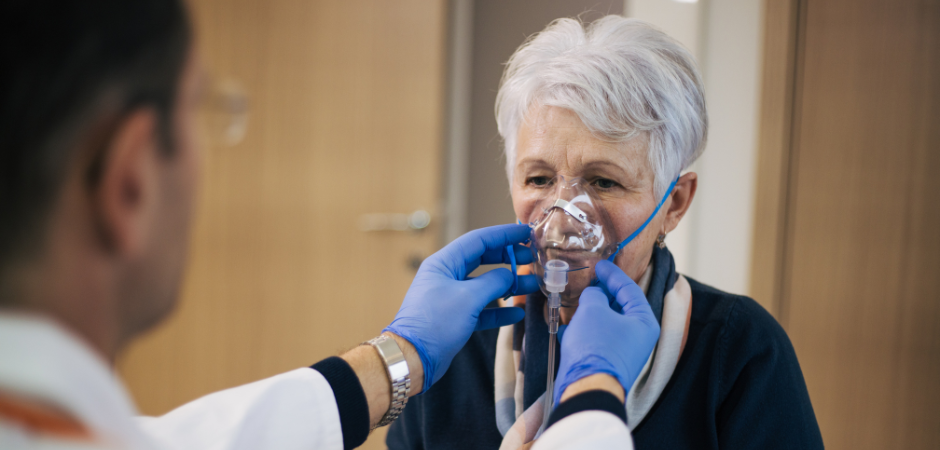
Respiratory Therapists in Critical Care
Respiratory therapists (RTs) are indispensable members of critical care teams. As healthcare delivery becomes more complex, retaining skilled RTs in these high-stress environments has become a pressin...
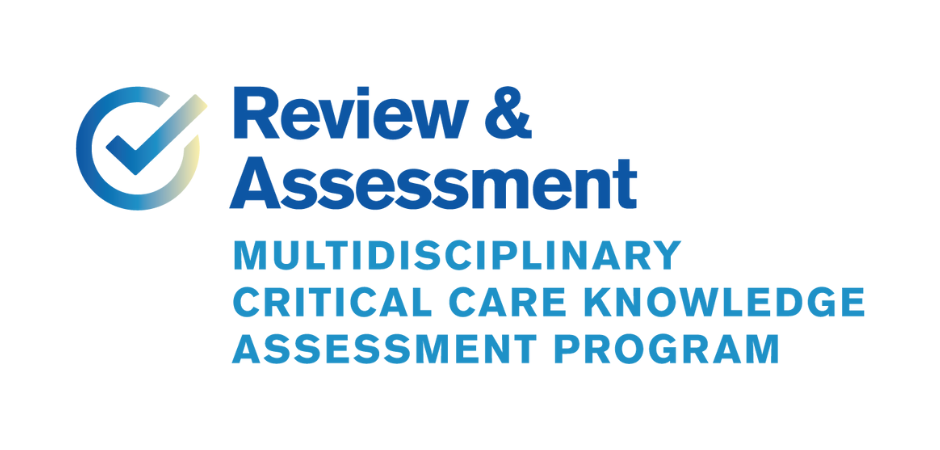
Preparing Future Critical Care Clinicians Through MCCKAP
Critical care trainees begin preparing for board examinations from the moment they start their training program. The Multidisciplinary Critical Care Knowledge Assessment Program (MCCKAP) offers a uniq...

ECMO and Coagulation Test Correlation
This Concise Critical Appraisal explores a recent retrospective review that analyzed clusters of simultaneously performed coagulation tests in critically ill adults treated with extracorporeal membran...
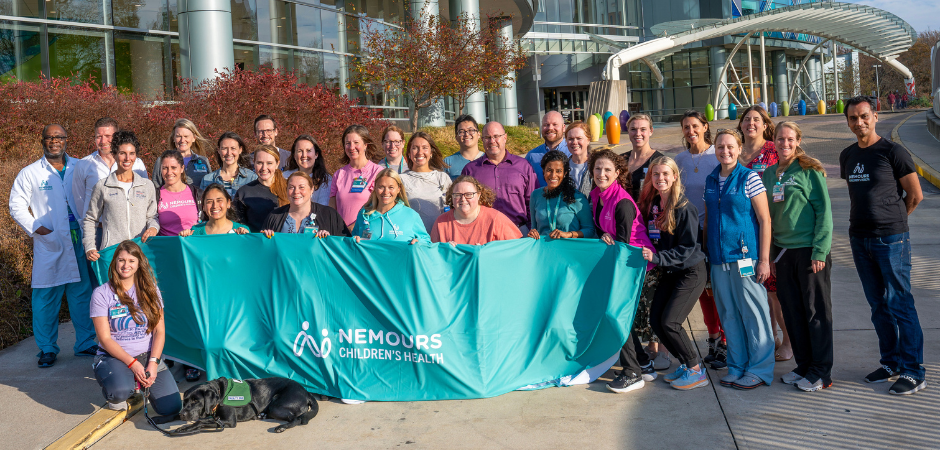
2025 ICU Heroes Award Recipients
The Society of Critical Care Medicine’s ICU Heroes Award is given to an ICU patient, their family, and the multiprofessional team that delivered the care. The 2025 ICU Heroes Award recipients ar...

President's Message: Update on U.S. Executive Orders Impacting the Society
The Society of Critical Care Medicine (SCCM) leadership is evaluating the impact of key areas of concern from recent U.S. presidential executive orders that could affect the Society, its members, the ...

Current Practices of PICU Practitioners in the Treatment of Bronchiolitis
This Concise Critical Appraisal reviews a recent study examining pediatric ICU use of β-agonists, hypertonic saline, antibiotics, mucolytics, and steroids for children with bronchiolitis. The stu...

AIRS Project Providing Medical Oxygen and Stable Electricity to Africa
The Africa Infrastructure Relief and Support (AIRS) project focuses on delivering stable medical oxygen and electricity to hospitals in Sierra Leone, the Gambia, and Liberia, empowering clinicians to ...

A Novel Approach to ICU Liberation-Focused Multidisciplinary Rounds
Staff from one ICU describe how they integrated the ICU Liberation Bundle (A-F) into the electronic health record to improve patient care.

The Healing Power of Music and Family: An ICU Survivor's Journey
Sergio L. Zanotti-Cavazzoni, MD, FCCM, talked with Andrew Schulman about his journey from ICU survivor to medical musician.

Evidence-Based Versus Conventional Methods to Prevent Pressure Injuries
This Concise Critical Appraisal discusses a recent meta-analysis that analyzed the likelihood of developing pressure injuries when evidence-based nursing interventions are implemented in critically il...

President's Message: Nurse Practitioners: Education, Certification, and Practice
As nurse practitioners take on increasingly responsible roles in practice, it is worthwhile to review how the education, certification, licensure, and practice have evolved over the past 55 years to b...

Telecritical Care Versus Usual Care in ICU Patients
Does telecritical care impact patient care in ICUs? This Concise Critical Appraisal reviews a recent randomized controlled trial on 30 Brazilian ICUs comparing the effects on patients of telecritical ...

Thought Leaders at the 2025 Critical Care Congress
The Society of Critical Care Medicine’s (SCCM) annual Critical Care Congress is an opportunity for critical care professionals from around the world to come together to discuss the latest trends...

Break the Ice at Congress
Attending Congress for the first time? SCCM provides first-time attendees with suggestions of what to expect at Congress and how to maximize the Congress experience based on recommendations from other...
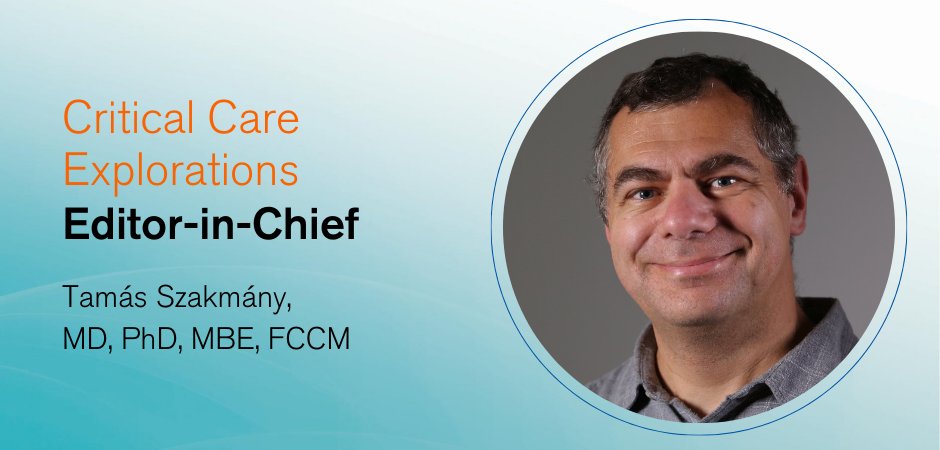
SCCM Welcomes New Editor-In-Chief of Critical Care Explorations
The Society of Critical Care Medicine (SCCM) has named Tamás Szakmány, MD, PhD, MBE, FCCM, as the new editor-in-chief of Critical Care Explorations.

Characteristics of Decision Regret in the PICU
This Concise Critical Appraisal discusses a recent study identifying conditions associated with parents’ decision regret after their critically ill children were discharged from the pediatric in...

Euglycemic Versus Hyperglycemic Diabetic Ketoacidosis
Patients taking SGLT2 inhibitors are at increased risk for diabetic ketoacidosis (DKA). Clinicians often miss the diagnosis of DKA when blood glucose levels are near normal. Patients with euglycemic D...

President's Message: Hot Topics: Implementation Science, Augmented Intelligence, and Social Determinants of Health
Implementation science, augmented intelligence, and social determinants of health are at the forefront of critical care and will ultimately change how clinicians provide the best care in ICUs.

2025 Critical Care Congress Cochairs Message: Come to Congress!
The 2025 Critical Care Congress will be held February 23-25, 2025, at the Orange County Convention Center in Orlando, Florida, USA. Register now!
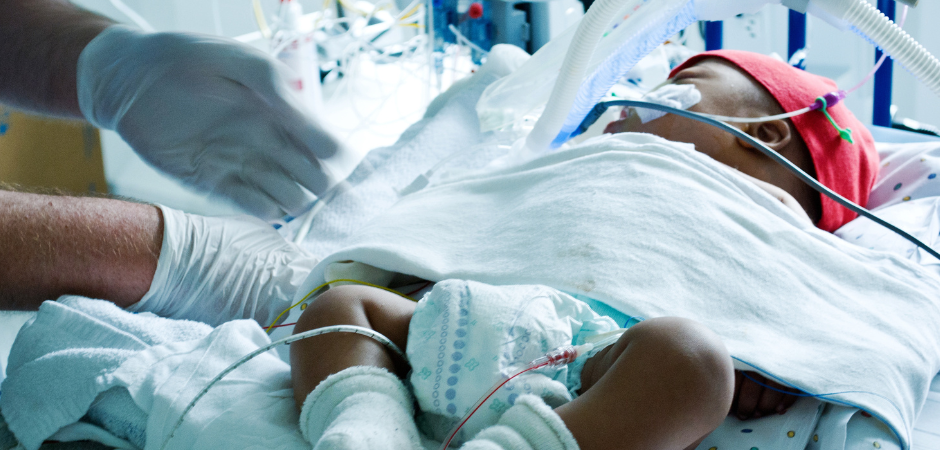
SCCM Task Force Develops New Criteria to Identify Pediatric Sepsis
An SCCM task force used an extensive approach to develop the most comprehensive and up-to-date criteria for defining sepsis and septic shock in children.

Choice Framing in Family Meetings
This Concise Critical Appraisal explores a study that reviewed transcripts from family meetings in the ICU to determine how clinicians use choice frames to present care options.

Outcomes of Children With Medical Complexities Based on Language Spoken
This Concise Critical Appraisal reviews a recent study exploring the outcomes of children with medical complexities who speak a language other than English.

Professional Development: Skills, Super-Skills, and Ultra-Skills
Examine professional development through a new framework to succeed in today’s complex ICU clinical environment.

Leaning Forward, SCCM Journals Transition to Fully Online
Driven by a shift in how information is consumed today and a focus on environmentally friendly publishing practices, the Society of Critical Care Medicine (SCCM) is transitioning its journals Critical...

Breathing Easier: Evolving Strategies in Ventilator Liberation Guidelines
This Concise Critical Appraisal discusses the major changes to the ventilator liberation guidelines, including completing spontaneous breathing trials before noon but not requiring low-level pressure ...

New Study Showcases the Power of the ICU Liberation Bundle
A new study further illustrates that implementing the ICU Liberation Bundle (A-F) decreases patients’ mechanical ventilation duration and ICU length of stay (LOS), which can improve ICU patient ...

President's Message: Supporting Each Other in Critical Care Careers
Growing and advancing careers in critical care starts at home with the multidisciplinary team.

Utility of Endovascular Thrombectomy in Patients With Large Infarct Cores
This Concise Critical Appraisal explores a study that evaluated the clinical outcomes of patients with large infarct cores and Alberta Stroke Program Early CT Scores of less than 3 who underwent endov...

Vital Role of Clinician-Patient Communication: An SCCM Member’s Story
SCCM member Amy Tschirhart, MSN, APRN, CPNP-AC, shares how her own story of multiple ICU stays has influenced her practice as a pediatric ICU nurse practitioner.

SCCM Resources Help ICU Teams Address Well-Being
The Society of Critical Care Medicine has put together two free toolkits to address clinician workload, well-being, and burnout, providing resources and tools that reflect the uniqueness of the ICU.

Bacterial Codetection in Infants With Lower Respiratory Tract Infections
This Concise Critical Appraisal explores a recent study evaluating the prevalence of bacterial codetection in infants with lower respiratory tract infections and its association with longer ventilator...

Editorial Leadership Change for Critical Care Explorations
Timothy G. Buchman, PhD, MD, MCCM, has announced that he will step down as editor-in-chief of Critical Care Explorations.

Timing of Antibiotics in Septic Patients With Septic Arthritis
When should antibiotics be administered in septic patients with septic arthritis? This Concise Critical Appraisal reviews a recent study that sought to determine whether patients with septic arthritis...

SCCM Welcomes New Editor-In-Chief of Critical Care Medicine
The Society of Critical Care Medicine (SCCM) has named Jonathan E. Sevransky, MD, MHS, FCCM, as the new editor-in-chief of Critical Care Medicine, starting in October 2024.

Mechanical Circulatory Support With ECPR
Does adding mechanical circulatory support to extracorporeal membrane oxygenation (ECMO) lead to better outcomes than ECMO alone? This Concise Critical Appraisal reviews a recent meta-analysis that co...

SCCM Critical Care Workforce Update 2023
As an update to a 2019 workforce report, three committees from the Society of Critical Care Medicine evaluated critical care medicine’s continued emergence from the COVID-19 pandemic, changes in...
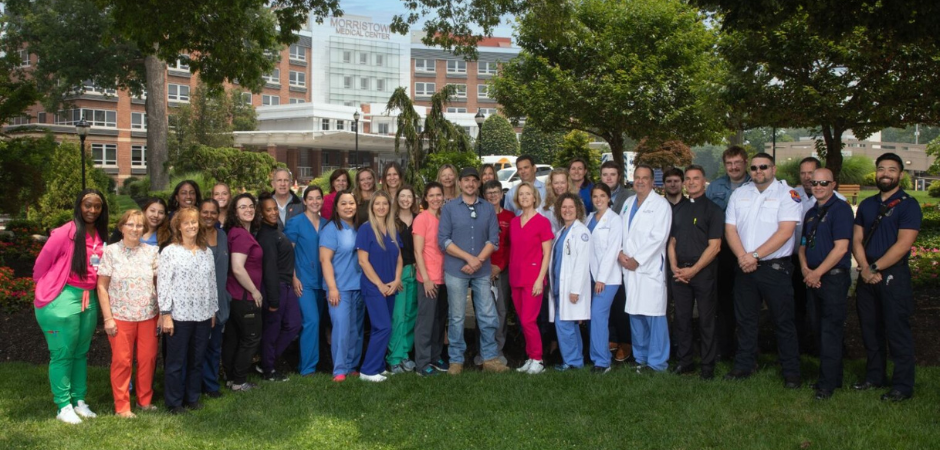
2024 ICU Heroes Award Winners
Independence Day is supposed to be a day of celebration, but for Cooper Roberts and Ian Azeredo, it was life changing. If it were not for their respective critical care teams, it would have been life ...

Fluid Resuscitation in Children With Acute Kidney Injury
Should critically injured children receive balanced crystalloid (BC) solutions or normal saline (NS) during fluid resuscitation? This Concise Critical Appraisal explores a recent study examining wheth...

Appropriate Antibiotic Delay in Bloodstream Infections: How Long Is Too Long?
Does delaying antibiotic treatment in patients with bloodstream infections have an effect on mortality? This Concise Critical Appraisal reviews a study on the impact that time-to-appropriate antimicro...

Extracorporeal Cardiopulmonary Resuscitation for Cardiac Arrest
Does extracorporeal cardiopulmonary resuscitation (eCPR) improve survival rates? This Concise Critical Appraisal reviews a study that sought to determine whether patients who received eCPR after out-o...

Fundamentals Courses Help Critically Ill Patients in Underserved Areas
Thanks to the Society of Critical Care Medicine and the Edwards Lifesciences Foundation, Gisselle Aguilar Sabillon, MD, recently led two Pediatric Fundamental Critical Care Support courses in San Pedr...

My First Congress: What to Know
Attending your first Critical Care Congress? Read on for some tips and tricks on navigating the meeting without becoming overwhelmed.

World-Renowned Experts at the 2024 Critical Care Congress
SCCM is thrilled to bring world-renowned thought leaders to the 2024 Critical Care Congress to discuss innovative developments and hot topics in critical care. Read the thought leaders’ own prev...

SCCM Members Extend Commitment to Ukrainian Clinicians
A multiprofessional group of SCCM members trained more than 300 clinicians in September, returning to Lviv, Ukraine to provide Fundamental Critical Care Support: Surgical, ICU Liberation, and Advanced...

Critically Ill Children and the ICU Liberation Bundle
Does use of the ICU Liberation Bundle (A-F) improve outcomes in critically ill children? Explore the first multicenter report on the impact of the entire ICU Liberation Bundle in critically ill childr...

SCCM Success at AMA House of Delegates Meetings
Society of Critical Care Medicine representatives to the American Medical Association House of Delegates provide an update on recent advocacy.

REDISCOVER-ICU: Utilizing Data to Study Drug Repurposing Beyond COVID-19
The COVID-19 pandemic exposed significant gaps in the healthcare system, such as healthcare inequities and the need for more treatment options for intensive care unit patients with serious illnesses. ...

The Impact of Blood Culture Positivity on Community-Acquired Sepsis
This Concise Critical Appraisal delves into the impact of blood culture positivity on community-acquired sepsis and evaluates the epidemiology, resistance profiles, and clinical outcomes of culture-po...

President's Message: Research Triggers Thought...and Action!
SCCM is supporting transformative and informative research, encouraging thought and action through its grants, programs, sections, collaborative audits, and research networks.

Push-Dose Vasopressor Safety and Efficacy
Are push-dose vasopressors (PDPs) safe and effective for patients with hypotension outside the operating room? This Concise Critical Appraisal covers a recent study that sought to determine whether ph...

SCCM Diagnostic Excellence Program Seeks to Transform Sepsis Care With Support of CMSS Grant
Sepsis is the leading cause of hospitalization and hospital deaths in the United States. SCCM has received a grant from the Council of Medical Specialty Societies to improve diagnostic excellence. SCC...

Big Data Leads to the Discovery Data Science Campaign
The Discovery Data Science Campaign was launched in 2022 to improve the care of critically ill patients by leveraging the use of large-scale data (big data) for research. The campaign’s goal is ...

Concise Critical Appraisal: Prehospital Transfusions and Mortality in Pediatric Trauma
Is prehospital transfusion associated with better outcomes in pediatric trauma? This Concise Critical Appraisal reviews a retrospective study of children who sustained trauma that found that pediatric...

RSV Vaccination in Adults May Curtail Morbidity and Mortality
This Concise Critical Appraisal delves into the impact of respiratory syncytial virus (RSV) and explores a recent trial that led to U.S. Food and Drug Administration approval of the first RSV vaccine....

Critical Care Congress Site Selection
SCCM President Vinay M. Nadkarni, MD, MS, FCCM, provides an overview on how the Society is prioritizing and rethinking ease, comfort, and cost of access to the Critical Care Congress when selecting fu...

Concise Critical Appraisal: Hydrocortisone and Fludrocortisone Versus Hydrocortisone Only
Is hydrocortisone for septic shock best used alone or in combination with fludrocortisone? This Concise Critical Appraisal explores a retrospective cohort study that found that treatment with hydrocor...

SCCM Trains Ukrainian Clinicians on Critical Care Ultrasound
Members of the Society of Critical Care Medicine (SCCM) traveled from the United States to Lviv, Ukraine in March to train more than 140 clinicians on lifesaving critical care ultrasound. Learning and...

Remembering Norma Shoemaker: A Nurse Pioneer and SCCM’s First Executive Director
Norma J. Shoemaker, RN, MN, FCCM, one of the Society of Critical Care Medicine’s (SCCM) earliest nurse members and its first executive director, died March 8, 2023. She was 90.

Trip to West Africa Kicks Off SCCM AIRS Project
Oxygen is essential for human life and has no substitute. Its importance was highlighted during the COVID-19 pandemic by the many patients who had difficulty breathing. Medical oxygen is used in many ...

Concise Critical Appraisal: Endothelial Glycocalyx Integrity and Fluid Bolus Types
Is there an association between balanced versus unbalanced fluids and endothelial glycocalyx integrity in children with sepsis? This Concise Critical Appraisal offers insight into the vascular dysfunc...

Concise Critical Appraisal: Artificial Intelligence and the ICU Patient
With the advancement and increasing popularity of artificial intelligence (AI) systems, researchers have begun studying how to apply the technical capabilities of AI to the intensive care unit (ICU). ...

Concise Critical Appraisal: Timing of Prone Positioning During Venovenous ECMO for ARDS
This Concise Critical Appraisal explores a meta-analysis showing that prone positioning is beneficial for patients meeting criteria for venovenous extracorporeal membrane oxygenation (ECMO), especiall...

An Update on SCCM Relief Efforts in Türkiye and Syria
SCCM President Vinay M. Nadkarni, MD, MS, FCCM, provides an update on the SCCM emergency response efforts for the Turkiye-Syria Earthquake.

SCCM to Lead Ultrasound Training in Ukraine
José L. Díaz-Gómez, MD, FASE, FCCM, rides his bicycle to work every day in Houston, Texas. He passes the Texas Medical Center, where he sees a large Ukrainian flag on one of the hospital buildings. Th...

SCCM Africa Infrastructure Relief and Support Project Will Improve Access to Oxygen in West Africa
The Society of Critical Care Medicine’s (SCCM) new global health initiative, Africa Infrastructure Relief and Support (AIRS), will ensure the availability of medical oxygen to patients in the Ga...

Spreading Point-of-Care Ultrasound Training With the SCCM Course
In 2014, Nibras F. Bughrara, MD, FASA, FCCM, joined Albany Medical Center (AMC) in Albany, New York, USA, after completing a critical care medicine fellowship and perioperative echocardiography traini...

COVID-19 Shutdown Expands Opportunity to Teach Critical Care Medicine
Before Michael J. Waxman, MBA, MD, FCCM, heads out to teach an FCCS course, he goes into his attic, where his simulation and teaching equipment is stored. He selects what he needs among the mannequins...

Teaching Crisis Management in the United States and Around the World
Mary J. Reed, MD, FCCM, began teaching FCCS about 25 years ago. From there, her involvement expanded to teaching multiple SCCM courses, helping to develop courses, and teaching the courses overseas.

SCCM Supports FCCS Training in Tajikistan
Khorog, the regional capital of Gorno-Badakhshan Autonomous Oblast (GBAO), sits at an elevation of 2200 meters among the beautiful but rugged and isolated Pamir Mountains, where some people live at el...

The Critical Care Community Shares Why It’s “Better Together” at Congress 2023
The Society of Critical Care Medicine's (SCCM) 2023 Critical Care Congress in San Francisco marked the in-person return of the largest multiprofessional critical care gathering, bringing together ...

Fluid Accumulations and Adverse Outcomes in Critically Ill Pediatric Patients
Is there an association between fluid accumulation (FA) and adverse outcomes in critically ill pediatric patients, and is there a threshold FA associated with these outcomes? This Concise Critical App...

Dr. Glaucomflecken Shares Humor on Social Media and at 2023 Critical Care Congress
Social media star and comedian Dr. Glaucomflecken, aka ophthalmologist William E. Flanary, MD, along with his wife, Kristin Flanary, MA, shared social media insights as well as his experience as an IC...

2023 ICU Heroes Award Winners: Perseverance and Compassion Amid the Chaos
Fifteen-year-old Rowen Cartmill played basketball for Westside Christian High School’s freshman team on January 8, 2022. Three days later, he was in the pediatric intensive care unit (ICU) at Ra...

Early Mobilization During Mechanical Ventilation: Pain With No Gain
Early active mobilization has been shown to mitigate ICU-acquired weakness, reduce disability and, most importantly, reduce mortality. This Concise Critical Appraisal describes a recent article publis...

NIH Funds SCCM Discovery Study on the Use of Sepsis Bundles in the Emergency Department
In funding a five-year prospective multicenter study to determine the safest and most effective approach to sepsis intervention, the National Heart, Lung, and Blood Institute (NHLBI) is recognizing th...

Improving Post-ICU Stay Outcomes: How SCCM’s Discovery Grant Helped Establish an NIH-Funded Study
Paul E. Wischmeyer, MD, EDIC, FASPEN, FCCM, has a highly personal understanding of the challenges of recovering from an intensive care unit (ICU) stay. Diagnosed at age 15 with ulcerative colitis, his...

SCCM Member Creates Telehealth Nonprofit to Help Ukrainians
When Russia invaded Ukraine, Jarone Lee, MD, MPH, FCCM, like so many others, wanted to help the Ukrainian people. But beyond donating money or supplies, Dr. Lee realized his unique combination of skil...

SCCM Member Efforts in Ukraine
Rom A. Stevens, MD, FCCM, and Robert Kerr, MD, were planning to spend this past April sailing off the west coast of Alaska. The two retired Navy captains were looking forward to a relaxing escape, rea...

Concise Critical Appraisal: Impact of a Machine Learning Early Warning Score on Hospital Mortality
Common causes of death in hospitals, such as sepsis and respiratory failure, are treatable and benefit from early intervention. Machine learning algorithms or early warning scores can be used for earl...

Discovery and SARI-PREP Have Roles in Preparing for Next Pathogen Outbreak
The COVID-19 pandemic exposed major gaps in the U.S. healthcare system, prompting the National Emerging Special Pathogens Training and Education Center (NETEC) to form the National Special Pathogen Sy...

Concise Critical Appraisal: Professional Development Despite ICU Burnout and Staff Shortages
This Concise Critical Appraisal describes two articles that illuminate the associations among the COVID-19 pandemic, clinician well-being, and burnout—an article on the perceptions of critical c...

ICU Liberation Bundle Implementation: Nurses Champion Change as Early Adopters
How can nurses champion change and improve outcomes by implementing the ICU Liberation Bundle (A-F)? Laura S. Maples, MSN, RN, CCRN-K, summarizes how nurses become early adopters of the bundle, focusi...

Concise Critical Appraisal: Arginine Therapy in Hospitalized Children With Sickle Cell Anemia
Can arginine supplements improve the hemodynamics of children with severe pain or acute chest syndrome (ACS) related to sickle cell anemia? Although mortality rates in children with sickle cell diseas...

SCCM Humanitarian Efforts in Ukraine
The ongoing humanitarian crisis in Ukraine has quickly become historic for its magnitude. The conflict has also led to crisis within the Ukrainian healthcare system. Here is how the Society of Critica...

Concise Critical Appraisal: COVID-19 Pandemic Impacts Burnout Critical Care Professions Differently
The COVID-19 pandemic created a new challenging environment in which healthcare workers must survive. Before the pandemic, healthcare workers experienced burnout due to resource allocation and shortag...

Concise Critical Appraisal: Continued Rise of Venous Thromboembolism Across US Children’s Hospitals
Has the rate of venous thromboembolism (VTE) in children changed over time? A 2009 study reported a 70 percent increase in VTE in acutely and chronically ill children. The reasons for this increase we...

Mpox Outbreak: Frequently Asked Questions
The Society of Critical Care Medicine (SCCM) has compiled and developed resources on what clinicians need to know about mpox (formerly monkeypox). While mpox is usually a self-limited disease with sym...

Concise Critical Appraisal: Temperature Management After Cardiac Arrest
Recently published guidelines have replaced the recommendations on temperature management after cardiac arrest included in the 2021 post-resuscitation care guidelines co-issued by the European Resusci...

Best Practices for Mentorship and Burnout Mitigation
More than 75 percent of healthcare professionals have self-reported burnout as well as increased frustration and feeling overwhelmed at work. Andrea Sikora, PharmD, BCCCP, MSCR, FCCM, discusses what c...

AHRQ Releases New Experience-Based Toolkit for Intensive Care Units
The new Agency for Healthcare Research and Quality (AHRQ) Toolkit for Preventing CLABSI and CAUTI in ICUs offers customizable tools and training resources to help your facility prevent dangerous infec...

SCCM ICU Heroes: The Love Army
The ICU Heroes Award recognizes that patients and families are an integral part of intensive care unit (ICU) care. The award is given to an ICU patient and family and to the multiprofessional team tha...

Concise Critical Appraisal: Quality Improvement Intervention on Sleep and Delirium
Does your hospital use a checklist or bundle to minimize risk factors for delirium? Delirium is common in surgical and medical intensive care units (ICUs) and has shown to be associated with longer me...

Five Years of Discovery, the Critical Care Research Network
Several years before the COVID-19 pandemic uprooted healthcare worldwide, the Society of Critical Care Medicine (SCCM) launched a task force to identify gaps in critical care research and determine ho...

SCCM Demonstrates Commitment to Diversity, Equity, and Inclusion at 2022 Critical Care Congress
The Society of Critical Care Medicine’s (SCCM) dedication to diversity, equity, and inclusion (DEI) will be on full display at the 2022 Critical Care Congress. Congress will feature a number of ...

2022 Critical Care Congress Plenary: Health System Readiness 2.0
Brendan G. Carr, MD, MA, MS, will address some of the realities of the COVID-19 pandemic and how health systems can prepare during the Peter Safar Memorial Lecture at the 2022 SCCM Congress.

2022 Critical Care Congress Thought Leaders: Data Science and Critical Care
Matthew Churpek, MD, MPH, PhD, will share the top 10 things he wished someone had told him about clinical predictive modeling as part of the thought leader session Data Science and Critical Care at th...

Leapfrog Dashboard Tracking of Postoperative Sepsis: An Opportunity for Quality Improvement
This article describes the new Leapfrog quality metrics and their methodology, focusing on postoperative sepsis identification and the potential impact of dashboard performance tracking moving forward...

Increased Mental Disorder Diagnoses in Children After Invasive Mechanical Ventilation
This Concise Critical Appraisal highlights an article in Pediatric Critical Care Medicine that sought to determine the association between invasive mechanical ventilation—a known predic...

An Update on SCCM Relief Efforts in Ukraine
SCCM President Sandra L. Kane-Gill, PharmD, MSc, FCCP, FCCM, provides an update on the SCCM emergency response efforts in Ukraine.

2022 Critical Care Congress Plenary: What Has COVID-19 Taught Us About ECMO?
Peta M.A. Alexander, MBBS, FRACP, FCICM, will present the Max Harry Weil Memorial Lecture titled, "What Has COVID-19 Taught Us About ECMO?" during SCCM’s 2022 Critical Care Congre...

Effect of Bougie Versus Endotracheal Tube With Stylet on Successful Tracheal Intubation
Tracheal intubation is a high-risk procedure that is frequently performed in the emergency department and intensive care unit. Failure of first-pass success (FPS) when intubating has been shown to be ...

SCCM Releases PANDEM Guidelines for Critically Ill Children and Infants
Emphasize importance of continual assessment, nonpharmacologic interventions, and family involvement. The PANDEM guidelines for children and infants were published in the February 2022 issue of Pediat...

Concise Critical Appraisal: Vasopressin and Methylprednisolone for In-Hospital Cardiac Arrest
Although several trials have examined in-hospital cardiac arrest (IHCA), only two trials in the past decade have examined the use of vasopressin and glucocorticoids for IHCA. Both trials found improve...

2022 Critical Care Congress Thought Leaders: Critical Care Nurses and COVID-19
John J. Gallagher, DNP, RN, CCNS, CCRN-K, TCRN, RRT, FCCM, will bring his experiences and teaching enjoyment to SCCM's 2022 Critical Care Congress, where he will lead the thought leader session Cr...

2022 Critical Care Congress Thought Leaders: Genetics and Genomics
During the 2022 Critical Care Congress, Karin Reuter-Rice, PhD, NP, FAAN, FCCM, will talk about precision health, and specifically the role omic technologies play in critical care in a thought leader ...

Managing Moral Distress During a Pandemic
To help understand what moral distress looks like and how to manage and prevent it, the Society of Critical Care Medicine recently hosted the webcast Managing Moral Distress During a Pandemic.

2022 Critical Care Congress Plenary: Cultivating Leadership from Within
Beth A. Wathen, CCRN-K, MSN, RN, is the current president of the American Association of Critical-Care Nurses (AACN), the world’s largest specialty nursing organization. Ms. Wathen has had the u...

COVID-19 Experiences from the Front Lines
With the average rate of daily new cases of COVID-19 on the rise, and the delta and omicron variants causing concern, the Society of Critical Care Medicine (SCCM) asked members in states with high rat...

Best Practices for Managing Staff Shortages
In SCCM's webcast “Best Practices for Managing Staff Shortages,” a multiprofessional panel of experts discussed how staffing challenges arise in overwhelmed healthcare systems and how ...

Preparing Adult Clinicians to Treat Pediatric Patients
With the rise in cases among children across the country, more healthcare professionals who typically work with adult patients are being tasked with treating pediatric patients. SCCM’s latest bl...

Concise Critical Appraisal: Rapid Implementation of an Intensivist-Led VV ECMO Cannulation Program
This Concise Critical Appraisal explores an article published in Critical Care Medicine on a program at Cooper University Hospital in Camden, New Jersey, USA, that implemented a previously pu...

SCCM Donations Fund Tele-Critical Care Project
On August 14, a 7.2-magnitude earthquake rattled the nation of Haiti, killing more than 2200 people and leaving thousands of Haitians injured and in need of assistance.1 Beyond the casualti...
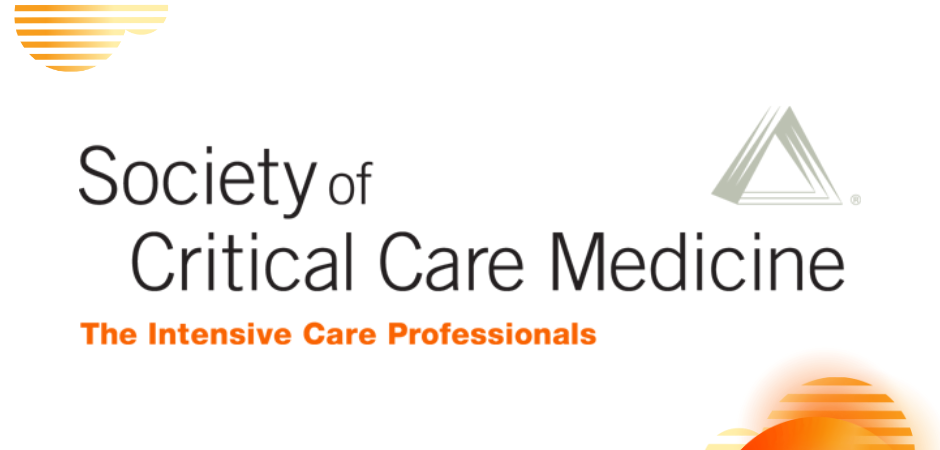
Let’s look into the future of critical care together!
As the Society of Critical Care Medicine (SCCM) winds down its 50th year, its leadership continues to celebrate the dedication and vision of SCCM members in sustaining its journey.

2022 Critical Care Congress Thought Leaders: The Future of Critical Care
Rebecca A. Aslakson, MD, PhD, and Michelle N. Gong, MD, MS, will present a thought leader session titled The Future of Critical Care: Artificial Intelligence to Zoom Family Meetings during the 2022 Cr...

Innovating Consistency in Care Through the STOP-VIRUS ICU Learning Collaborative
In the preliminary analysis of the VIRUS COVID-19 Registry of Discovery, the Critical Care Research Network, investigators discovered significant variations in mortality that were not readily explaine...

Critical Care and Pulmonary Societies Encourage Flu Shots Amid COVID-19 Spread
The members of the Critical Care Societies Collaborative, which are the American Association of Critical-Care Nurses (AACN), American College of Chest Physicians (CHEST), American Thoracic Society (AT...

Concise Critical Appraisal: Epinephrine Dosing Intervals on Outcomes From Pediatric In-Hospital Cardiac Arrest
The average annual incidence of pediatric in-hospital cardiac arrest (IHCA) has recently been estimated at more than 15,000 cases. Survival rates for pediatric patients who have had pulseless cardiac ...

SARI-PREP Research Collaborative Aims To Revolutionize the Future
Groundbreaking study of hospitalized COVID-19 and influenza patients charts new path in critical care research. Severe Acute Respiratory Infection - Preparedness (SARI-PREP) is a groundbreaking new re...

Surviving Sepsis Campaign Releases 2021 Adult Sepsis Guidelines
Updated global adult sepsis guidelines, released by the Surviving Sepsis Campaign (SSC), place an increased emphasis on improving the care of sepsis patients after they are discharged from the intensi...

Concise Critical Appraisal: Awake Prone Positioning For COVID-19 Acute Hypoxemic Respiratory Failure
This Concise Critical Appraisal explores an article in The Lancet Respiratory Medicine that evaluated the efficacy of awake prone positioning to prevent intubation or death in patients with sev...

ICU Liberation: How Pharmacists Can Champion Change and Improve Outcomes
Joanna L. Stollings, PharmD, FCCP, FCCM, and Devin N. Holden, PharmD, BCPS, BCCCP, summarize how pharmacists can play an important role in the development and implementation of each element of the ICU...

Remembering a Founder: Ake Grenvik, MD, PhD, MCCM
Ake Grenvik, MD, PhD, MCCM, a founding member of the Society of Critical Care Medicine (SCCM) and one of the earliest pioneers of critical care, died on September 5, 2021. He was 92.

Prepare for a Surge of Pediatric Patients With COVID-19
With children going back to school, continued outbreaks of respiratory syncytial virus (RSV), and the upcoming flu season, it is important to prepare for potential surges of pediatric patients with CO...

An Update on SCCM Relief Efforts in Haiti
SCCM President Greg S. Martin, MD, MSc, FCCM, provides an update on the SCCM relief efforts in Haiti.

Updated Guidelines on Management of Clostridioides difficile Infection in Adults
Clostrididioides difficile infection (CDI) occurs in about 4% of ICU patients, causing fulminant colitis and death in nearly 60% of symptomatic critically ill patients, so it is imperative for ICU pro...

Concise Critical Appraisal: Improving Training for Invasive Bedside Procedures
Invasive bedside procedures (IBPs) require a high degree of familiarity and skillful expertise. Yet effective and thorough bedside training can be haphazard or unattainable. Chest published a systemat...

Ethical Considerations for a COVID-19 Vaccine Mandate
Mandate to vaccinate or nudge if there is no budge? COVID-19 vaccines remain a key weapon in the fight against the deadliest modern-day pandemic the world has seen. In this article, we summarize key f...

Concise Critical Appraisal: Cardiac Ultrasound in Pediatric Septic Shock Assessment
How can clinical information gleaned from focused cardiac ultrasound (FCU) be used to augment clinical assessments in children with suspected septic shock? This month’s Concise Critical Appraisa...

An SCCM Member Responds to a Call for Volunteers
Before the COVID-19 pandemic, Tina R. Shah, MD, MPH, focused her work on two questions: How can technology help improve the United States health system and, more specifically, how can it be used to im...

Concise Critical Appraisal: Development of the CCEeXAM
Bedside echocardiography has become increasingly widespread among physicians caring for critically ill patients. The Examination of Special Competence in Critical Care Echocardiography (CCEeXAM) was a...

Johnson & Johnson’s Janssen COVID-19 Vaccine: What Clinicians Need to Know
In the past few weeks more than 7 million doses of Johnson & Johnson’s Janssen COVID-19 vaccine have been administered to people in the United States. In clinical trials of approximately 40,...

Concise Critical Appraisal: Surviving Sepsis Campaign COVID-19 Guidelines Update
The updated Surviving Sepsis Campaign (SSC) COVID-19 guidelines are now available, reflecting the learnings from the latest major studies. This month’s Concise Critical Appraisal dives into the ...

ICU Liberation: The Role of Rehabilitation Professionals
The ICU Liberation Bundle (A-F) can help rehabilitation practitioners and respiratory care practitioners (RCPs) assess the broad, long-term goals of patients while zooming in on the immediate steps ne...

Concise Critical Appraisal: Asynchronous and Distance Learning in the Age of COVID-19 and Beyond
The medical community has faced many challenges as a result of the COVID-19 pandemic, including ensuring continued medical education in the face of social distancing guidelines and the increased workl...

Achieving Buy-In for the ICU Liberation Campaign
As a bedside nurse in the intensive care unit (ICU), I did not have much understanding of the financial impact my care was having on the patients and my hospital. I have since graduated with a masters...

Tocilizumab May Reduce Mortality in Certain COVID-19 Patients
Two recent trials suggest that immune-damping drugs such as tocilizumab may reduce mortality in patients with severe COVID-19.

Discovery VIRUS Registry Outcomes and STOP-VIRUS ICU Learning Collaborative
The first outcomes of VIRUS were recently published in Critical Care Medicine. More than 20 manuscripts are being prepared for publication during the next several months. Additionally, sites ...

Concise Critical Appraisal: Early Hemostatic Management of Disseminated Intravascular Coagulopathy
This Concise Critical Appraisal delves into a study published in Pediatric Critical Care Medicine that sought to determine whether early hemostatic intervention can prevent the development of D...

Addressing Implicit Bias in the Critical Care Workforce
Implicit bias is an unconscious negative view of a group of people that can compromise relationships and, in the case of the medical community, stand in the way of good healthcare. Learn how to approa...

The Future of Sepsis Treatment
Sepsis continues to affect Americans and hospital patients across the United States. The Centers for Disease Control and Prevention (CDC) estimates that approximately 1.7 million adult Americans devel...

The Future of Critical Care Medicine
Bertalan Mesko, MD, PhD, presents on the future of critical care medicine at SCCM's 50th Critical Care Congress.

Association of Socioeconomic Status and Pediatric Sepsis Outcomes
Children being treated for sepsis stayed in the hospital longer if they lived in low-income ZIP codes compared to those who were from high-income ZIP codes, suggests a large national study being prese...

ICU-Telemedicine May Reduce Death
Intensive care unit (ICU) patients who receive services via telemedicine are less likely to die and more likely to leave the hospital sooner compared with those receiving traditional ICU care, suggest...

A Shot in The Dark: COVID-19 Vaccine Update
A January 8, 2021, SCCM webcast focusing on COVD-19 vaccination served as a primer for healthcare professionals who will be among the first to receive vaccines.

Concise Critical Appraisal: ARREST Trial: ECMO Versus Advanced Cardiac Life Support
The ARREST Trial compared extracorporeal membrane oxygenation (ECMO)-facilitated resuscitation to advanced cardiac life support (ACLS) treatment in patients with out-of-hospital cardiac arrest (OHCA)....
The Difficult Path Ahead: We Hear You and Are Here for You
SCCM released a statement to media imploring the public to rise to the challenge and follow recommended public health measures, such as mask wearing, social distancing, hand hygiene, avoiding large gr...

Concise Critical Appraisal: Is CPR Futile for COVID-19 Patients?
Is cardiopulmonary resuscitation (CPR) futile in hospitalized patients with COVID-19 experiencing cardiac arrest? A study recently published in Critical Care Medicine sought to answer this...

Impact of Rapid Exome Sequencing on Management of Critically Ill Children
Dive into a study that evaluates a standardized process of using rapid exome sequencing to help diagnose critically ill children with suspected genetic diseases in this Concise Critical Appraisal.

COVID-19: What’s Next: A Deeper Dive into Top Sessions
COVID-19: What’s Next, the first-of-its kind virtual conference hosted by the Society of Critical Care Medicine (SCCM), featured the newest research findings, epidemiologic models, and guideline...

Concise Critical Appraisal: Dexamethasone Use in the Treatment of COVID-19
This Concise Critical Appraisal offers a look into the results of the RECOVERY trial published in the New England Journal of Medicine, which demonstrated that dexamethasone improved mortality i...

SCCM Experts Weigh in on Latest COVID-19 Treatment Strategies
This article distills some of the challenges and lessons learned in key areas of COVID-19 management: convalescent plasma therapy and strategies for diabetes/hyperglycemia and myocarditis.

Clinicians Report Ventilator Shortages
Clinicians responding to the COVID-19 pandemic have experienced shortages of mechanical ventilators, according to a rapid-cycle survey distributed by the Society of Critical Care Medicine (SCCM). Surv...

Concise Critical Appraisal: Early Use of Tranexamic Acid in the Treatment of Gastrointestinal Bleeds
This Concise Critical Appraisal offers a deep dive into the HALT-IT trial, which investigated whether early use of tranexamic acid to treat acute severe gastrointestinal bleeds would reduce overall mo...

PPE Strategies for the COVID-19 Era
The supply of personal protective equipment (PPE) has been uncertain since the start of the COVID-19 pandemic. Months into this healthcare crisis, supply chains are unpredictable as reports of shortag...

How to Maintain Wellness in the COVID-19 Era
Intensive care unit (ICU) clinicians tend to pride themselves on their ability to care for others, even if it is at the expense of taking care of themselves. Some think of this mantra of others before...

Concise Critical Appraisal: PERSEVERE Biomarkers in Predicting AKI in Pediatric Septic Shock
Can the biomarkers identified in the Pediatric Sepsis Biomarker Risk Model (PERSEVERE II) be used to predict acute kidney injury and renal recovery in pediatric septic shock? This Concise Critical App...

Configuring the ICU in the COVID-19 Era: Real-World Experience
Because all of us are learning as we go and hungry for insights from other healthcare professionals and facilities that have been treating patients who are critically ill with COVID-19, SCCM has creat...

Countering COVID-19 Delirium with the ICU Liberation Bundle
The ICU liberation Bundle (formerly known as the A-F bundle) is more important than ever in the COVID-19 era. While the pandemic has changed much inside intensive care units (ICUs), the commitment to ...

Concise Critical Appraisal: Early Self-Proning in Awake, Nonintubated Patients in the ED
This Concise Critical Appraisal explores an article by Caputo et al published in Academic Emergency Medicine describing the use of early self-proning in awake, nonintubated patients in the em...

Message From the SCCM President on Diversity
Currently, we face extraordinary challenges on a global scale, with multiple crises erupting one after another. Each of them compels us to thoughtfully reexamine the professional and deeply personal a...

SCCM's Decision on In-Person Meetings
SCCM is adjusting the format of its meetings and conferences to reflect these new realities. After careful consideration and feedback from many members, SCCM has come to the difficult decision to repo...

SCCM and Its Members Rise to the COVID-19 Challenge
There is no doubt we are living in a new world. The COVID-19 pandemic is challenging organizations and individuals to react quickly and adapt overnight.

What Critical Care Clinicians Need to Know Today About MIS-C
Clinicians are sharing early findings about an emerging critical illness predominantly affecting school-aged children and young adults. The Centers for Disease Control and Prevention (CDC) has defined...

Sharing Data is the Key to Unlocking Remdesivir Challenges
Critical care teams should consider using remdesivir to treat patients with severe acute SARS-CoV-2 infection, but supply of the drug is limited and best practices for maximizing its effectiveness are...

Concise Critical Appraisal: Planning and Provision of ECMO for Severe ARDS From COVID-19
This Concise Critical Appraisal explores a Lancet Respiratory Medicine article by Ramanathan et al, which outlines how to plan for extracorporeal membrane oxygenation (ECMO) for patients with...

Clinicians Report High Stress in COVID-19 Response
Critical care clinicians are feeling increased personal stress about COVID-19 and are especially worried about infecting loved ones, while also expressing continued concern about personal protective e...

SCCM President-Elect to Fast-Track COVID-19 Testing
SCCM's president-elect Greg S. Martin, MD, MSc, FCCM, is among the experts tapped to lead a national effort to super-charge the innovation, development, and commercialization of a COVID-19 testing...

SCCM Deploys Supplies and Volunteers to Support ICUs in Need
With hospitals in hardest-hit areas clamoring for clinicians, supplies, and equipment during the COVID-19 pandemic, SCCM has been working with other nonprofits and corporations to answer the hospitals...

Concise Critical Appraisal: Use of Early Versus Late Enteral Nutrition in Critically Ill Children
What is the benefit of early versus late nutrition in critically ill children? In this Concise Critical Appraisal, Daniel E. Sloniewsky, MD, FCCM, offers a deep dive on this Pediatric Critical Care Me...

Message from the President: COVID-19
Acute inpatient care - and critical care in particular - has responded to the COVID-19 pandemic in unprecedented ways. Hospital entry screening, reduction or near-elimination of visitation, universal ...

SCCM Member Volunteers to Care for NYC COVID-19 Patients
SCCM member Gregory Margolin, DO, FCCP, FCCM, will be volunteering in New York City next week. He has been treating critically ill patients with COVID-19 at his hospital in Scottsdale, Arizona, and wi...

ICU Readiness Assessment: We Are Not Prepared for COVID-19
Nearly 5000 U.S. intensive care unit (ICU) clinicians say that their ICUs are not prepared for the potential onslaught of COVID-19 patients. According to the Society of Critical Care Medicine's (S...

SCCM Member Provides Remote Disaster Response to Italy
SCCM Member and disaster management expert Marie R. Baldisseri, MD, MPH, FCCM, is helping Italy remotely with their COVID-19 response plans. Dr. Baldisseri shares her knowledge about the situation in ...

Critical Care Physician Tapped to Lead COVID-19 Testing Efforts
Assistant Secretary for Health Admiral Brett P. Giroir, MD, a prominent critical care physician who has a long history of membership and involvement with the Society of Critical Care Medicine (SCCM), ...

United States Resource Availability for COVID-19
With the onset of COVID-19, and the strong possibility of large percentages of the U.S. population being admitted to the hospital and intensive care unit (ICU), the Society of Critical Care Medicine (...

Concise Critical Appraisal: Dexamethasone Use in the Treatment of ARDs
Villar et al (Lancet Respir Med. 2020;8:267-276) attempted to demonstrate the effect of steroids in patients with moderate to severe a...

ICU Liberation Labs: Engaging the Team Ensures the ICU Liberation Bundle Improves Patient Outcomes
The ICU Liberation Labs during the 49th Critical Care Congress featured information about the ICU Liberation Initiative - which aims to liberate patients from the harmful effects of pain, agitation, s...

Discovery Grant Awarded to Researchers Seeking to Uncover Drivers of PARDS, Improve Therapy
Researchers seeking to evaluate the causes of PARDS and improve therapy options have been awarded the Discovery Research Grant, making it the first time the full grant has been awarded to a single pro...

SCCM Awards Three Weil-Research Grants
Named for Society of Critical Care Medicine's (SCCM) founder and its first president, Max Harry Weil, MD, PhD, MCCM, the SCCM-Weil Research Grant is typically awarded to two SCCM members as a step...

From the PICU to America’s Got Talent: Angelica Hale’s Story
Most people know Angelica Hale as the tenacious young lady who won hearts with her incredible performances on America's Got Talent in 2017. But before she became the youngest runner-up in the show...

Message from the President: Sepsis
In 2001 a sepsis definitions conference was held to determine whether new data existed to inform updates to the sepsis criteria established in 1991. Afterward, the Society of Critical Care Medicine (S...
Surviving Sepsis Campaign Releases First Children’s Sepsis Guidelines
The Surviving Sepsis Campaign (SSC) released its first evidence-based guidelines for the pediatric patient population in the February 2020 issue of Pediatric Critical Care Medicine.

Caring for Critically Ill Patients with Novel Coronavirus
Concern over the 2019 novel coronavirus (2019-nCoV) is growing. It is vital that those on the frontlines be prepared. This article highlights several strategic goals and special considerations related...

Joint Commission Proposes Changes to Medication Management Standard
The Joint Commission (TJC) is proposing the addition of new and revised requirements for hospital, critical access hospital, ambulatory care, home care, behavioral healthcare, and nursing care center ...

Assessment of Inflammation Phenotypes in Pediatric Sepsis-Induced Multiple Organ Failure
This Concise Critical Appraisal discusses how Carcillo et al (Pediatr Crit Care Med. 2019. Epub ahead of print) compared mortality in children with severe sepsis and MOF who present with one of four p...

How ICU Liberation Brought Value to Our Patients, Team Members, and Administrators
An interview with an ICU Liberation Collaborative Leader and Participant.

Donor-Funded Training Supports Fundamentals Courses in Rwanda
Learn how Society of Critical Care Medicine (SCCM) members turned a passion for improving care into action by holding donor-funded training in resource-limited areas.

Strategies for Reducing and Eliminating CLABSI And CAUTI in the Intensive Care Unit
The Society of Critical Care Medicine (SCCM) held a session at the 48th Critical Care Congress that offered best practices for reducing CLABSI and CAUTI infections. Subject matter experts discussed qu...

Concise Critical Appraisal: Moderate Therapeutic Hypothermia in Patients with Nonshockable Rhythms
Lascarrou et al (N Engl J Med. 2019. Epub ahead of print) set out to test the effectiveness of moderate therapeutic hypothermia (MTH) in patients with nonshockable rhythms.

Help Shape the Future of Sepsis Research on the National Level
The National Institute of General Medical Sciences (NIGMS) is changing its priorities to invest in sepsis research in a more targeted and strategic way. In an important opportunity to help shape the f...

Concise Critical Appraisal: Cardiac Arrest in the ICU: An Assessment of Preventability
Moskowitz et al (Resuscitation. 2019. Epub ahead of print) set out to investigate the preventability of ICU-CAs and identify targets for future intervention.

Texas In-Hospital Do-Not-Resuscitate Orders: New Law, New Changes
In-hospital do-not-resuscitate (DNR) orders in the State of Texas have faced much tighter regulation since April 2018. With Senate Bill 11, both the meaning of a DNR order and the circumstances in whi...

Anti-Factor Xa-Based Monitoring of Unfractionated Heparin
Saini et al (J Pediatr. 2019;209:212-219.e1) sought to evaluate the clinical outcomes in pediatric patients receiving unfractionated heparin while being monitored using anti-factor Xa and to determine...

Concise Critical Appraisal: Early Sedation Using Dexmedetomidine in Critically Ill Patients
Shehabi et al (N Engl J Med. 2019;380:2506-2517) set out to examine the effects of using dexmedetomidine as the primary agent for early sedation among patients receiving ventilatory support and found ...

Concise Critical Appraisal: Mentorship in Academic Medicine
Disch (Crit Care Med. 2018;46:437-441) set out to highlight the benefits of mentorship and its lack in underrepresented groups. Although women and minorities make up an increasing percentage of physic...

Concise Critical Appraisal: Effect of Community-Acquired Pediatric Sepsis on Survivors
Killien et al (Pediatr Crit Care Med. 2019;Epub ahead of print) set out to evaluate the prevalence of health-related quality of life (HRQL) decline in pediatric survivors of community-acquired sepsis,...

Working Together to Advance Diversity and Inclusion
Read about the Society of Critical Care Medicine's (SCCM) efforts to seek diversity and inclusion within the critical care profession and SCCM organization.

Concise Critical Appraisal: Impact of Mentoring in Academic Medicine
Efstathiou et al (PLoS One. 2018;13:e0207634) developed a standardized mentorship program and a series of surveys to evaluate the program’s impact, specifically measuring faculty satisfaction an...

Concise Critical Appraisal: Epinephrine Versus Norepinephrine for Cardiogenic Shock
Levy et al (J Am Coll Cardiol. 2018;72:173-182) conducted a prospective, double-blind, multicenter RCT comparing epinephrine to norepinephrine in the setting of CS in patients who underwent AMI treate...

Concise Critical Appraisal: Effect of Low Versus Intermediate Tidal Volume Strategy
Simonis et al (JAMA. 2018;320;1872-1880) set out to evaluate the effect of an LTVV strategy versus an intermediate tidal volume ventilation strategy in intensive care unit patients without ARDS.

Concise Critical Appraisal: Antipsychotic Medications for Delirium in the ICU
Girard et al (N Engl J Med. 2018;379:2506-2516) and Page et al (Lancet Respir Med. 2013;1:515-523) evaluated the treatment of acute delirium with antipsychotics.

Concise Critical Appraisal: Use of Telemedicine During Interhospital Transport of Children
Jackson et al (Ped Crit Care Med. 2018;19:1033-1038) set out to analyze the impact telemedicine had on time to surgery in children with intracranial hemorrhage (ICH).

Concise Critical Appraisal: Epinephrine in Out-of-Hospital Cardiac Arrest
Perkins et al (N Engl J Med. 2018;379:711-721) set out to examine the effects of epinephrine during OHCA.

Concise Critical Appraisal: Ultra-Low Tidal Volume Ventilation During CPR
Ruemmler et al (Resuscitation. 2018;132:56-62) set out to compare intermittent positive pressure ventilation to passive oxygenation (continuous positive airway pressure) and a novel ultra-low tidal vo...

Concise Critical Appraisal: Effect of Sodium Bicarbonate Infusion on Patient Outcomes
Jaber et al (Lancet. 2018;392:31-40) set out to evaluate the effect of sodium bicarbonate infusion on critically ill patient outcomes.

Concise Critical Appraisal: The Effect of Ramelteon Administration on the Duration of ICU Stay
Nishikimi et al (Crit Care Med. 2018;46:1099-1105) set out to identify the effects of ramelteon, a melatonin agonist, on ICU length of stay for critically ill patients.

Concise Critical Appraisal: Fluid Administration and Diabetic Ketoacidosis
Kuppermann et al (N Engl J Med. 2018;378:2275-2287) sought to prospectively determine the role that fluid makeup and rate have on the development of neurologic injury in children with DKA.

Concise Critical Appraisal: The Efficacy of ECMO for Severe ARDS
Combes et al (N Engl J Med. 2018;378:1965-1975) set out to determine whether the use of ECMO reduced mortality in patients with ARDS when defined by one of three criteria.

Concise Critical Appraisal: Cerebral Oxygen Metabolism and RBC Transfusion in Infants
Neunhoeffer et al (Pediatr Crit Care Med. 2018;19:318-327) sought to use noninvasive means to determine the changes in cerebral oxygen metabolism in infants younger than 6 months who have undergone ma...

Concise Critical Appraisal: Effect of a Resuscitation Strategy Targeting Peripheral Perfusion Status Versus Serum Lactate
Hernández et al (JAMA. 2019;321:654-664) set out to address that question with a multicenter randomized trial in which they compared two resuscitative targets: the normalization of blood lactate and t...

Exploring SCCM: The ICU Centers of Excellence Program
The Society of Critical Care Medicine (SCCM) launched the ICU Centers of Excellence Program which seeks to encourage quality bedside intensive care unit (ICU) practice and outcomes awareness, recogniz...

